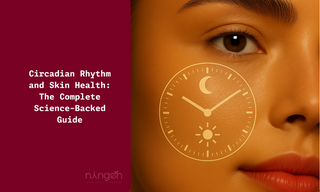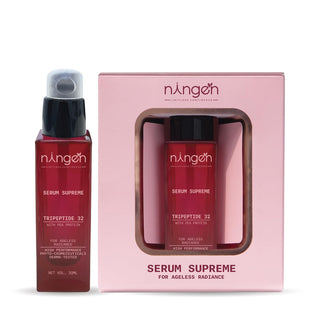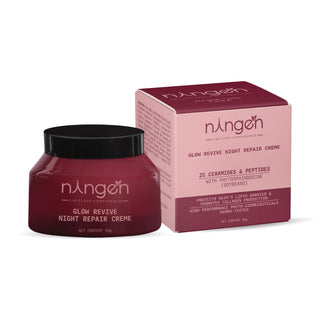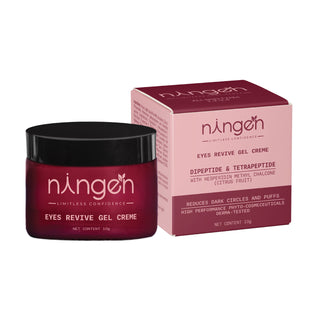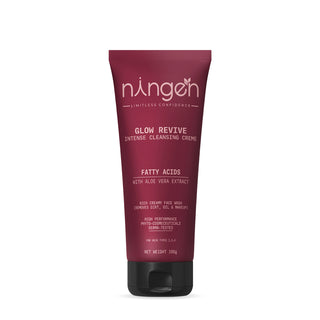Have you noticed how your skin glows after a good night's sleep but appears dull and tired after late nights? This isn't a mere coincidence—it's your skin's circadian rhythm at work.
The connection between your internal body clock and skin health represents one of modern skincare science's most significant yet underutilized discoveries. Understanding this relationship could transform not just how your skin looks, but how it functions at a cellular level.
In this comprehensive guide on Circadian Rhythm and Skin Health, we'll explore the fascinating world of chronobiology and reveal how working with, not against, your skin's natural rhythms can lead to remarkable improvements in everything from aging concerns to barrier function.
TL;DR
Your circadian rhythm significantly impacts skin health by regulating cell renewal, collagen production, and repair processes. Understanding this connection helps optimize skincare routines, with a daytime focus on protection and a nighttime emphasis on repair. Disruptions to your body clock can accelerate skin aging, while alignment with natural rhythms enhances skin's appearance and function.
In this Guide;
What Exactly Is Your Circadian Rhythm?
Circadian Rhythm and Skin Health
Understand Your Skin's Day-Night Cycle
Circadian-Optimized Skincare: Timing Is Everything
What Exactly Is Your Circadian Rhythm?
Your circadian rhythm is like your body’s internal clock—it runs on a 24-hour cycle and helps keep everything in sync with day and night. This natural rhythm has developed over millions of years, designed to match Earth’s light and dark patterns.
At the center of it all is a part of your brain called the suprachiasmatic nucleus (SCN), located in the hypothalamus. This “master clock” controls important body functions like:
-
Hormone levels
-
Body temperature
-
Metabolism and energy use
-
Sleep and wake cycles
-
Immune system performance
-
Skin cell repair and renewal
Circadian Rhythm and Skin Health
The circadian rhythm and skin health are closely connected because your skin, like the rest of your body, follows a 24-hour biological clock that controls how it behaves at different times of the day.

Why It Matters for Skincare?
Using the right ingredients at the right time of day helps:
-
Improve treatment effectiveness
-
Prevent premature aging
-
Support natural skin renewal cycle
This is the foundation of circadian skincare—formulas that are time-aligned with your skin’s natural rhythm.
What is Circadian Skincare?
Circadian skincare is a modern approach to skincare that works with your body’s natural 24-hour biological clock—called the circadian rhythm—to improve how your skin looks, feels, and repairs itself.
What Does Circadian Skincare Do?
Circadian skincare uses ingredients and routines that support your skin’s natural rhythm:
-
In the morning: Products are designed to protect (like antioxidants and sunscreens).
-
At night: Products are rich in repairing and hydrating ingredients (like peptides and probiotics) to help your skin recover while you sleep.
Why it matters:
When your skincare matches your body’s clock, you get better results—stronger protection during the day and deeper repair at night. It’s like giving your skin exactly what it needs, exactly when it needs it.

Understand Your Skin's Day-Night Cycle
Your Skin During Daylight Hours
During daytime, your skin prioritizes defense and protection. It's actively battling environmental challenges including:
-
UV radiation exposure
-
Pollution particulates
-
Free radical damage
-
Physical stress and friction
-
Temperature fluctuations
-
Microbial threats
Your skin's protective functions peak during daylight hours. Sebum production increases (explaining that midday shine), antioxidant defenses activate, and your skin's barrier function strengthens. This is when your skin's primary job is shielding your body from external damage.
Research shows that skin cell DNA repair enzymes reach peak activity around noon, precisely when UV exposure typically presents the greatest threat.
Your Skin After Sunset
As evening approaches, your skin undergoes a remarkable transformation, shifting from protection mode to regeneration mode. This nocturnal metamorphosis includes:
-
Cell regeneration accelerating by up to 30 times
-
Blood flow to the skin increasing significantly
-
Transepidermal water loss peaking (explaining why overnight hydration is crucial)
-
DNA repair mechanisms intensifying
-
Melatonin and growth hormone levels rising, boosting cellular renewal
Studies have demonstrated that skin permeability increases by up to 60% during night hours, explaining why certain active ingredients penetrate more effectively when applied before bed.
When Rhythms Get Disrupted: The Skin Consequences
When your circadian rhythm falls out of sync—whether from shift work, jet lag, irregular sleep schedules, or excessive blue light exposure—your skin suffers measurably.
What Can Disrupt Circadian Rhythm?
-
Poor sleep habits (e.g., sleeping too late, irregular sleep-wake times)
-
Exposure to artificial light at night (blue light from phones, laptops, TVs)
-
Shift work or frequent travel across time zones (jet lag)
-
Chronic stress
-
Lack of daylight exposure during the day
-
Night-time eating habits
Scientific research has linked circadian disruption to:
-
Accelerated skin aging and premature wrinkle formation
-
Impaired barrier function and increased sensitivity
-
Prolonged inflammatory responses
-
Slower wound healing and recovery
-
Higher risk of certain skin conditions, including eczema flares
-
Compromised UV protection and increased photodamage risk
A landmark 2014 study published in Clinical and Experimental Dermatology found that women experiencing chronic sleep deprivation showed significant increases in signs of skin aging, including fine lines, uneven pigmentation, and reduced elasticity. Researchers also observed that these participants' skin recovered more slowly from environmental stressors like sun exposure and pollution.
Source: National Library of Medicine
https://pmc.ncbi.nlm.nih.gov/articles/PMC6777699/
CED
https://academic.oup.com/ced/article/48/10/1113/7191992#google_vignette
Circadian-Optimized Skincare: Timing Is Everything
Understanding your skin's chronobiology creates powerful opportunities to optimize your skincare routine:
Morning Routine: Protection Phase
The Protection Setup
-
Gentle pH-balanced cleansing (your skin hasn't produced much oil overnight)
-
Antioxidant serums containing vitamin C, ferulic acid, and niacinamide
-
Light hydration with humectant-rich moisturizers
-
Broad-spectrum SPF 30+ protection (absolutely essential)
Why this timing works: Morning routines should focus on preparing your skin for daily environmental challenges. Your skin's natural protective functions are ramping up during these hours, making this the perfect time to supplement with protective ingredients that work synergistically with your skin's defenses.
Key morning ingredients:
-
Vitamin C (L-ascorbic acid)
-
Vitamin E (tocopherol)
-
Niacinamide (vitamin B3)
-
Green tea extract
-
Pea Protein
-
Caffeine
-
Olive Squalane
Evening Routine: Repair Phase
The Renewal Setup
-
Thorough double cleansing to remove accumulated pollutants, makeup, and excess sebum
-
Active repair ingredients that support cellular regeneration
-
Barrier-supporting moisturization to prevent transepidermal water loss
-
Targeted treatments for specific skin concerns
Why this timing works: Evening routines should capitalize on your skin's natural repair cycle. This is when cell turnover accelerates and your skin becomes more receptive to regenerative ingredients.
Key evening ingredients:
-
Retinoids (retinol, tretinoin, adapalene)
-
Peptides and growth factors
-
AHAs and BHAs (glycolic acid, salicylic acid)
-
Ceramides and fatty acids
-
Hyaluronic acid
-
Probiotics
-
Carnosine
Also read: Benefits of using the circadian rhythm serum
Chronocosmetics: The Cutting-Edge Science
The skincare industry has begun embracing circadian science with specially formulated products designed to work in harmony with your skin's biological rhythms—a field now known as "chronocosmetics."
These advanced formulations typically feature:
-
Time-specific delivery systems (day vs. night release mechanisms)
-
Ingredients that help resynchronize disrupted skin clocks (nobiletin, resveratrol)
-
Chronobiological delivery systems that release actives at optimal times
-
Formulations that support specific phases of skin's daily cycle
Some leading brands have pioneered this approach, investing in research that examines how ingredient efficacy changes throughout the 24-hour cycle.
Lifestyle Strategies for Circadian Skin Health
Skincare products alone can't compensate for lifestyle habits that disrupt your circadian rhythm. Research supports these rhythm-supporting strategies:
-
Consistent sleep schedule - Aim for the same bedtime and wake time daily, even on weekends
-
Morning sunlight exposure - Just 10-15 minutes helps regulate your master clock and vitamin D production
-
Evening blue light reduction - Consider blue-blocking glasses or screen filters after sunset
-
Regular meal timing - Irregular eating patterns can disrupt peripheral clocks, including those in skin cells
-
Strategic exercise timing - Morning or early afternoon workouts can help establish strong circadian signals
-
Stress management practices - Chronic stress disrupts cortisol rhythms, impacting skin health
-
Consistent skincare routine timing - Apply products at similar times each day

The Future of Chronobiology in Skincare
Researchers are currently exploring fascinating new frontiers in circadian beauty:
-
Personalized chronotype-based skincare routines tailored to individual "early bird" or "night owl" tendencies
-
Diagnostic tools that measure individual skin rhythm patterns and identify disruptions
-
Targeted ingredients that can reset disrupted skin clocks
-
Circadian-optimized ingredient delivery systems using chronobiological release mechanisms
-
Wearable technology that tracks skin biomarkers throughout the day
As our understanding of skin chronobiology continues to expand, we can expect increasingly sophisticated approaches to working with—rather than against—our body's natural rhythms.
Final Insights
Your skin doesn't operate in a timeless vacuum—it follows sophisticated biological rhythms that influence everything from cell renewal to barrier function to sebum production. By aligning your skincare routine with these natural cycles, you can potentially enhance your skin's resilience, appearance, and overall health.
The most effective skincare approach respects and works in harmony with your body's innate wisdom. After all, perfect timing may be the beauty secret we've overlooked for far too long.
What adjustments have you made to your skincare routine after learning about circadian rhythms? Have you noticed differences when you maintain a consistent sleep schedule? I'd love to hear your experiences in the comments below!
Frequently Asked Questions
Q1. How does circadian rhythm affect skin repair?
Circadian rhythm triggers increased skin cell regeneration, collagen production, and DNA repair mechanisms during night hours, making sleep essential for skin health and aging prevention.
Q2. What happens to skin when the circadian rhythm is disrupted?
Disrupted circadian rhythms can accelerate aging, compromise barrier function, increase sensitivity, and slow healing processes in the skin, leading to premature signs of aging.
Q3. Should I change my skincare routine based on the time of day?
Yes, morning skincare should focus on protection (antioxidants, sunscreen) while evening routines should emphasize repair (retinoids, peptides, deeper hydration) to work with your skin's natural rhythms.
Q4. Can irregular sleep patterns cause skin problems?
Absolutely. Irregular sleep directly impacts skin health, potentially causing premature aging, increased sensitivity, and slower recovery from environmental damage.
Q5. What time of day is best for anti-aging treatments?
Evening hours (7-10 PM) are optimal for anti-aging treatments as skin's receptivity to active ingredients increases and repair mechanisms are heightened during this period.
Q6. How does melatonin benefit skin health?
Melatonin acts as a powerful antioxidant in skin, helping repair UV damage, neutralize free radicals, and support cellular regeneration during sleep hours.
Q7. Can jet lag affect my skin?
Yes, jet lag disrupts your circadian rhythm, potentially causing dehydration, inflammation, and temporary impairment of your skin's barrier function for several days.
Q8. Are there specific ingredients that work better at night?
Ingredients like retinoids, certain peptides, AHAs, and enzymatic exfoliants tend to work more effectively at night when skin renewal is accelerated and sensitivity is reduced.
Q9. How quickly can skin recover from circadian disruption?
With consistent habits, your skin can begin showing improvements within 2-3 weeks of reestablishing healthy circadian patterns through regular sleep and skincare routines.
Q10. Does blue light from screens affect the skin's circadian rhythm?
Yes, evening blue light exposure can disrupt melatonin production, potentially interfering with skin's natural repair cycle and contributing to premature aging and oxidative stress.


